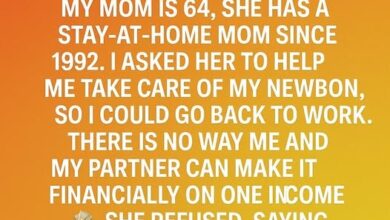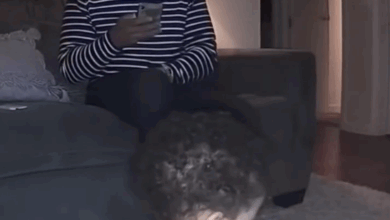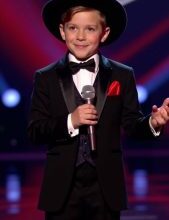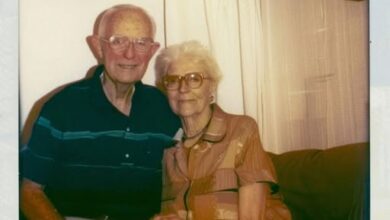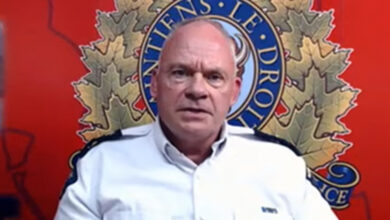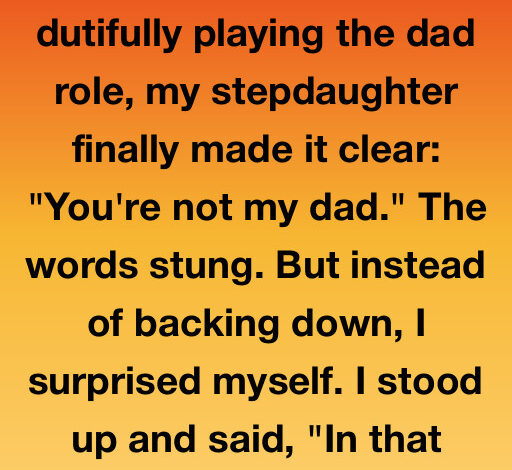
You Are Not My Dad? Then Lets Talk About What I Am!
She said it like flipping a switch: “You’re not my dad.”
The words didn’t spark anger. They hollowed me out. Ten years of scraped knees, late-night fevers, bike lessons, school plays, and heartbreaks—and still, in her eyes, I wasn’t “Dad.” Just “Mike.”
That night, I didn’t let it slide like I usually did. I drew a line.
“If that’s how you feel,” I said as calmly as I could, “then you don’t get to treat me like a punching bag and expect me to smile through it.”
Her eyes widened. She wasn’t used to me pushing back. She rolled her eyes, slammed her bedroom door, and that was the end of the scene.
I stayed at the kitchen table, staring into a cold cup of coffee, feeling the kind of heaviness that sticks in your bones. My wife, Claire, found me there.
“She’s hurting,” she said gently. “At her dad, at me… maybe at you. Because you stayed.”
I nodded, but understanding didn’t make it hurt any less. I slept maybe two hours that night.
The next morning I skipped the usual routine—no pancakes, no goodbye at the door. For days we circled each other like strangers sharing the same roof.
Then the school called. Missed assignments, slipping grades, two classes skipped. It wasn’t like her. Claire looked furious and terrified all at once.
That night, I slipped a sticky note under her door: Want to talk? No lectures. Just listening.
An hour later, she stood in my office doorway, arms crossed, chin tilted high, eyes guarded.
“I’m failing chemistry,” she said flatly. “And I hate it. And I don’t care.”
“Okay,” I replied.
She blinked. “That’s it?”
“You said no lectures.”
For the first time in weeks, she cracked a reluctant smile. “You’re weird.”
“Occupational hazard,” I said, and she laughed—until her face crumpled again.
“Everyone wants me to be perfect. Perfect grades. Perfect daughter. I don’t even know who I am half the time.” Her voice softened. “My dad barely calls. When he does, he just asks about school. Like I’m a report card, not a person.”
“You’re not a report card,” I told her. “You’re a whole person. I’m sorry if I haven’t shown you I see that.”
“You’re not the problem,” she whispered.
“Maybe not. But I haven’t always known how to show you that I’m here for more than a role.”
She looked me in the eye. “You’re not my dad,” she said again.
I braced for the sting.
“But you’ve been more of one than he ever was.”
The words didn’t erase the hurt, but they stitched something back together.
After that, little things shifted. She slid her chemistry book across the table one night with a grunt that meant help. We roasted my pathetic TikTok attempt on movie night. She asked—casually, like it wasn’t a big deal—if I’d come to her art sho
“Wouldn’t miss it,” I said.
At the show, she scanned the crowd and landed on Claire and me. A real smile broke across her face, unforced and full of light. Her painting was of a tree with two trunks twisted at the base—one sturdy, one growing beside it. The caption read: Not all roots are visible.
“What’s it mean?” I asked.
She shrugged. “Just something I thought about. Some people grow because of someone who’s always been there, even if nobody notices.”
I didn’t press. I just said, “It’s beautiful.”
A few days later, she handed me a Father’s Day card. Inside, in her looping handwriting: You may not be my dad. But you’re my Mike. And I wouldn’t trade that for anything.
I folded it carefully and tucked it into my wallet. It’s still there.
Years rolled on. She graduated, and I hauled boxes up three flights of dorm stairs, set up a wobbly lamp, and tightened loose screws on her desk. At the door, she said, “I know I was hard on you.”
“It’s in the teen manual,” I teased.
“No, really. You didn’t give up when I gave you every reason to.”
“I promised your mom—and myself—I’d be here. Always.”
“You were,” she said, hugging me so tight my ribs ached.
Life moved fast after that. She found work she loved, fell in love herself, and eventually got engaged. At the rehearsal dinner, her biological dad stood up and made a speech about wanting to do better. I clapped. People can change.
Then she stood up, glass trembling a little in her hand. “There are many kinds of fathers,” she said. “Some are given. Some are chosen. And some just show up and never leave. Mike wasn’t just my mom’s husband. He taught me to drive, sat through every parent-teacher meeting, waited in the rain at soccer, and loved me when I couldn’t love myself. Tomorrow, he’s not just walking me down the aisle—he’s walking me through the most important moment of my life.”
I couldn’t speak. Didn’t need to.
The next day, right before the chapel doors opened, I whispered, “Nervous?”
“A little,” she said. “But not about this part. With you, I feel safe.”
We walked together. And in that moment, I realized I never needed the title “Dad” to be one.
Years later, when her baby arrived—a tiny girl with a tuft of dark hair—she placed her in my arms first.
“This is Ava,” she said. “I want her to know what it feels like to be loved by someone like you.”
And now, whenever I visit, a small comet comes barreling down the hall screaming “Grandpa Mike!” like I hung the moon. Maybe I did, at least for her.
Here’s what I’ve learned: life doesn’t always hand you titles. Sometimes it hands you chances. You show up. You stay. You love without expectation, without applause. And one day, it comes back—in a painting, in a speech, in a card tucked in your wallet, or in the grip of a baby’s tiny hand.
If you’re loving someone quietly and consistently right now, keep going. You might not hear “thank you” today. But you’ll see it tomorrow—in their eyes, their smile, and the life you helped them grow into.
